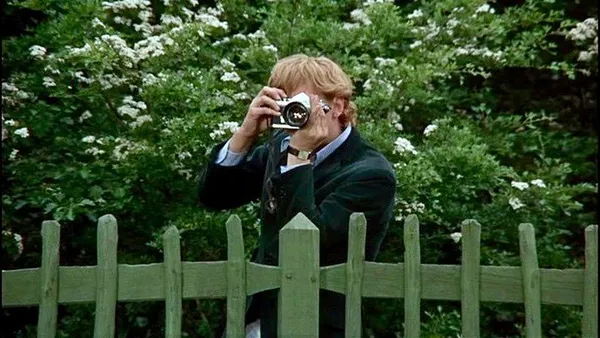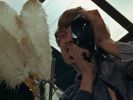Eye For Film >> Movies >> Blow-Up (1966) Film Review
Blow-Up
Reviewed by: Antoni Konieczny

Michelangelo Antonioni’s English-language debut, set in swinging Sixties London, was worshipped by New Hollywood directors, and it’s easy to see why. Blow-Up nails a dramatic use of urban space that American filmmakers spent the next decade chasing. That a generation of semiotically obsessed cinephiles fixated on this film is entirely logical. After all, for better or worse, Antonioni’s got his master stylist hat on here, even if it sometimes obscures his vision.
Blow-Up is a story about a photographer: Thomas (David Hemmings) is competent, successful, and pursued by models. He’s also sleazy and casually cruel. He’s chasing diversions: women, a plane propeller, a broken guitar – anything to offset the dull compromise between his personal and commercial work, the latter of which he resents.

There’s a sense that his cynicism feeds his detachment from reality. Antonioni nudges us to see his work like abstract art: shapes open to overinterpretation. When Thomas obsessively analyses a series of photos he took of a couple in a park, suspecting he’s captured a murder, we question whether the clues are real. Then, the woman from the photos (Vanessa Redgrave) shows up demanding the negatives.
In the black and white stills, Redgrave recalls Monica Vitti in L’Avventura (a superior film, incidentally). The two pictures share a similar blend of suspense and vagueness, but where L’Avventura hypnotises, Blow-Up can numb. The existential emptiness remains, now reframed through the banality of pop culture. The heavy symbolism inflates the film’s claim to importance, but experiencing it may feel not unlike Thomas scanning his blow-ups: finding meaning only in retrospect. In the moment, the images don’t always thrill.
Still, the direction is brilliant. William Friedkin once likened the film’s approach to a photo album – each cut a fresh setup, no repetition. Blow-Up inspired disciples like The Conversation and Blow Out, but a more revealing triple feature might include Repulsion and Deep End – a London line-up that highlights the film's most compelling asset: its thrilling narrative and emotional use of urban background.
Reviewed on: 17 Apr 2025

















